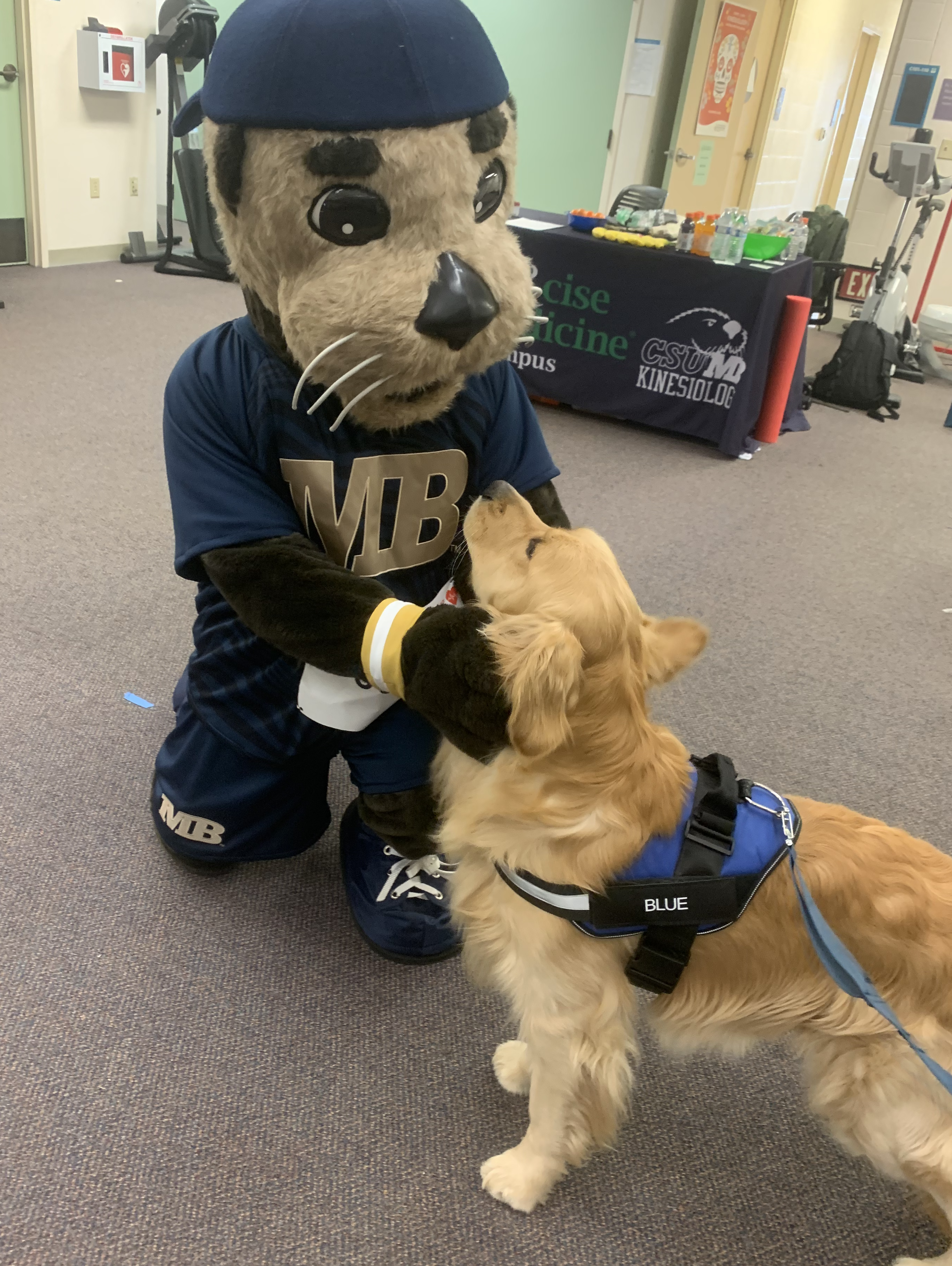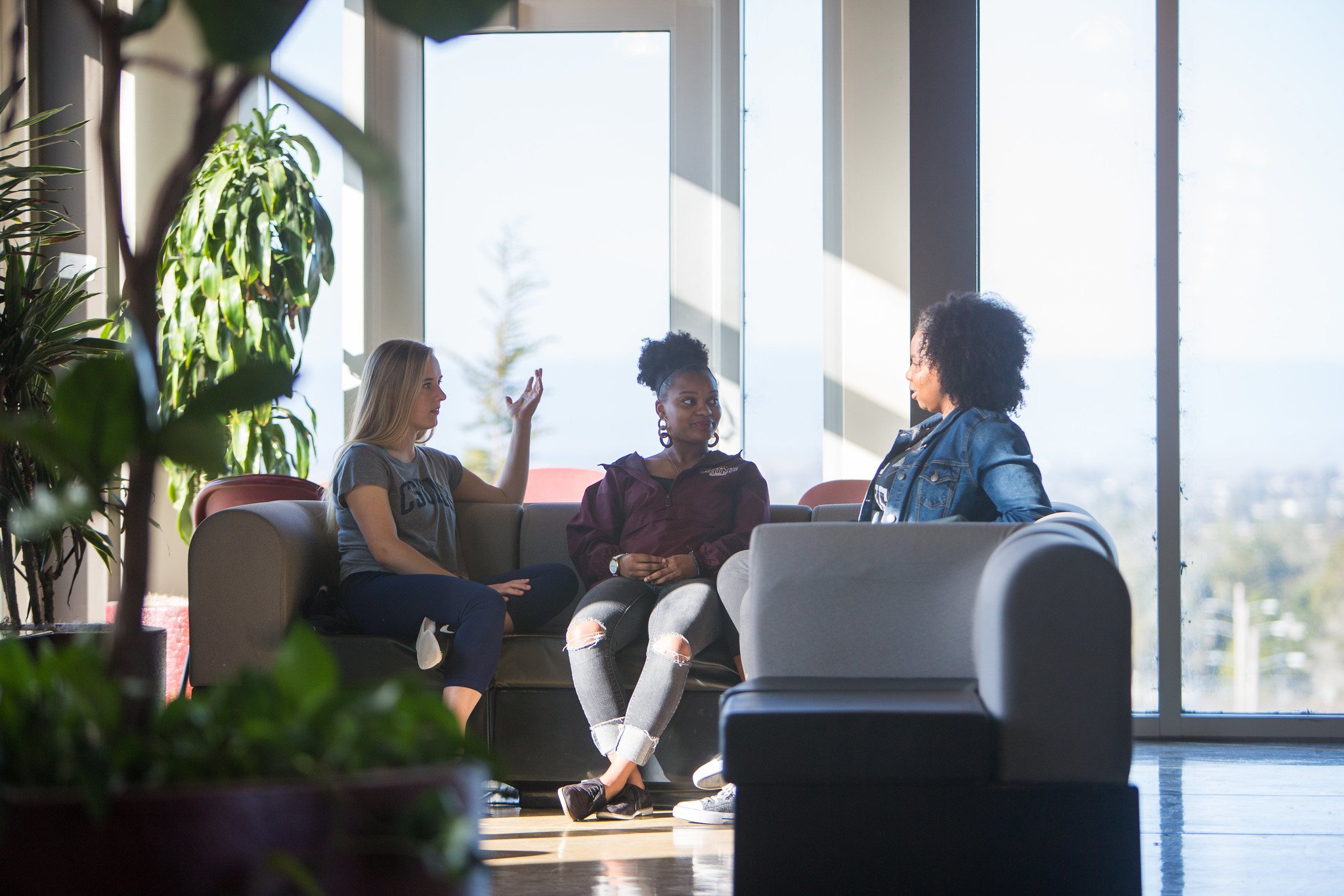
We cultivate a culture of open dialogue, mutual respect, and belonging to support educational excellence and student success. Through academic programs, student organizations and activities, faculty initiatives, and community partnerships, we encourage meaningful engagement and diverse perspectives. We are dedicated to advancing knowledge and empowering individuals to reach their full potential by prioritizing inclusive curriculum development, faculty and staff training, student mentorship, and comprehensive support programs.

Pet Therapy
Engaging in pet therapy can help improve both physical and mental health. Therapy dog Blue helps our campus community cope with stress and anxiety by providing a space to relax and absorb positive vibes.
Blue is certified through Bright & Beautiful Therapy Dogs Inc. and is available for event, classroom, and office visits upon request.
Land Acknowledgement
Cal State University, Monterey Bay (CSUMB) resides on the indigenous homeland of the Amah Mutsun, Esselen, Ohlone, Rumsen, Salinan people and territories. It is on these rich homelands, where CSUMB not only thrives as an institution of higher education, but also provides an education abundant with service and experience to a diverse community of learners. As our students, staff, faculty, alumni, and community members explore the university’s campus, remember to respect the land and take note of the natural beauty. Remember that Ancestors rest below pathways and in other less traveled areas on campus. We Are Here - Let Ka Lai
This statement was revised on March 11, 2024, in consultation with Monterey County Tribal leaders and CSUMB’s Native American Council. More details on CSUMB’s Land Acknowledgement are available on the Cultural Heritage Office website.
-1.jpg)

